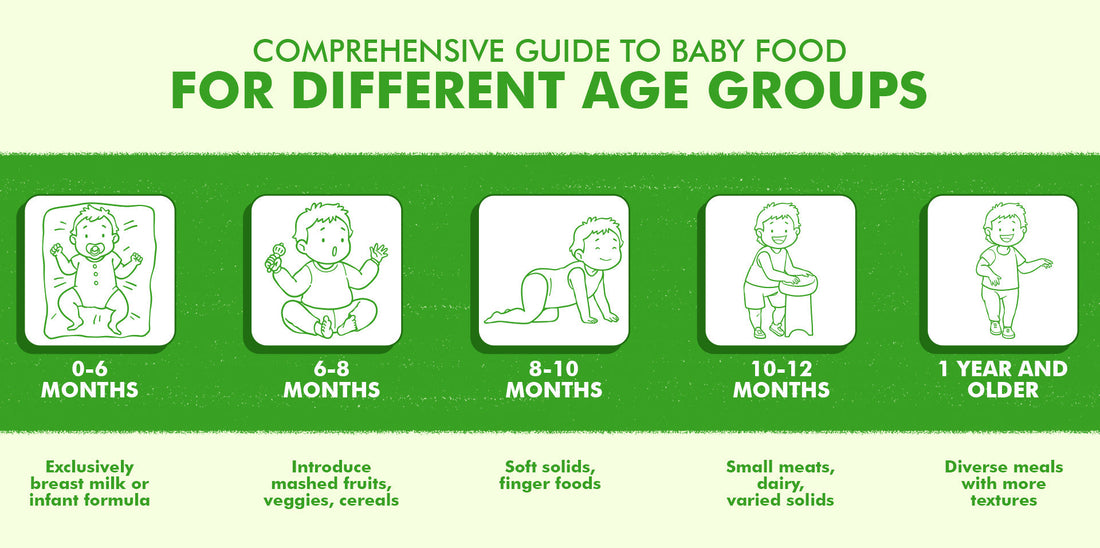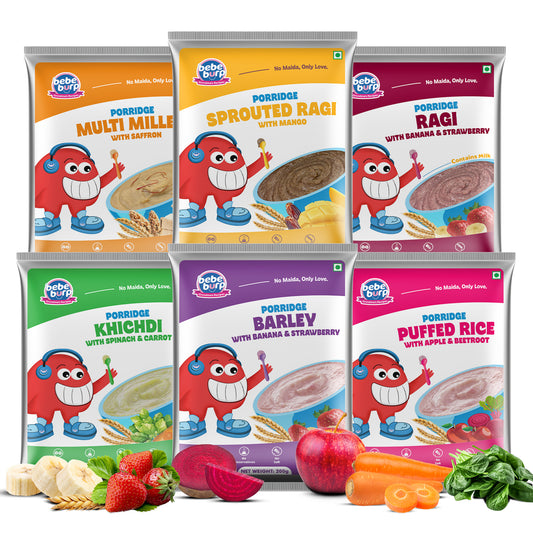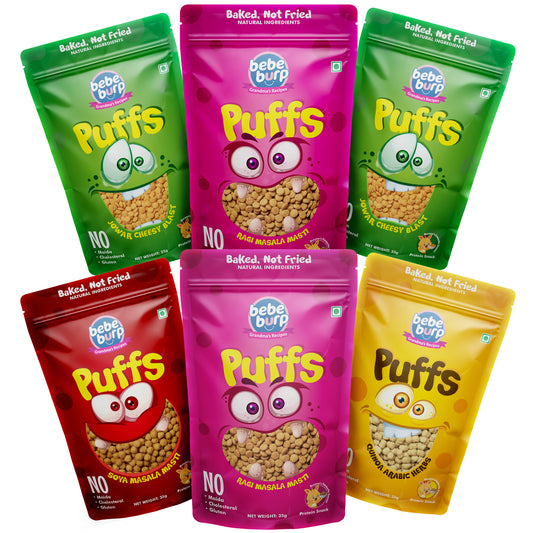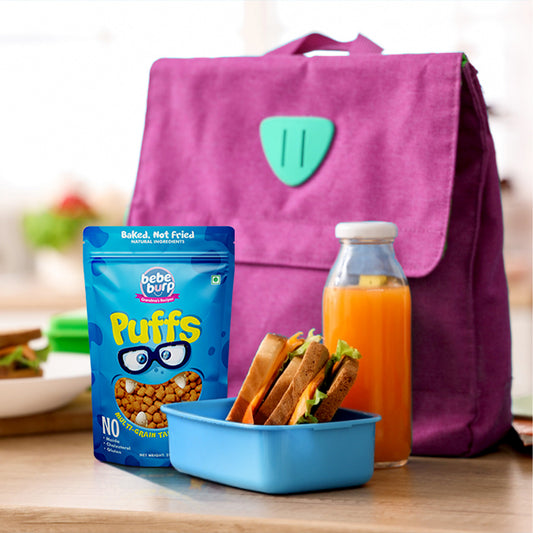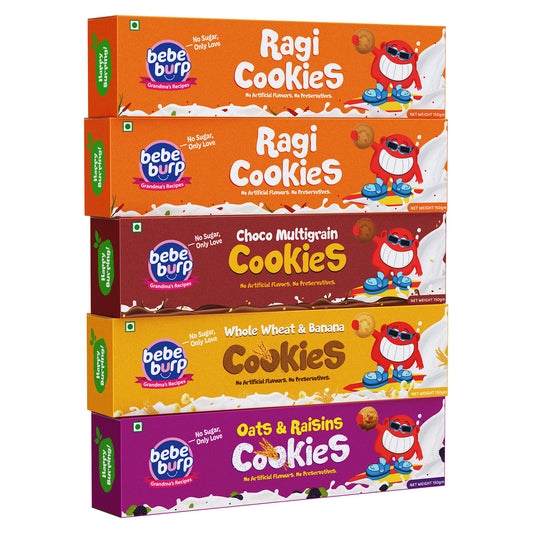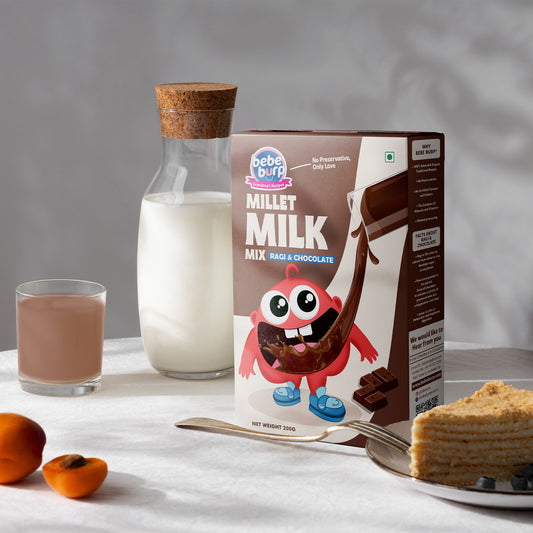A "Comprehensive Guide to Baby Food for Different Age Groups" is an extensive manual that suggests age-appropriate food for babies.
It demarcates which category of food constitutes safe nutrition and would help in a baby's healthy growth and development, considering the different life cycle stages.
The orientation provides details on the specific age categories as follows,
0-6 months: Infants are fed exclusively either breast milk or infant formula.
6-8 months: Infant diet is supplemented with mashed fruits, vegetables, and cereals.
8-10 months: Infants can consume solids that are soft and mashed along with easily chewable finger foods.
10-12 months: Infants can start consuming solids in greater quantities, small amounts of meat, and dairy products.
One year older: A more diverse meal plan, including cooked soft family meals, meat, fish, other textures, vegetables, fruits, and grains, is also sufficient.
Understanding the Importance of Age-Appropriate Baby Food
In the first few years, babies grow quickly, and this requires a variety of nutrition at different stages. Initially, your baby will require a lot of milk, but with time, as your baby grows, their digestive system becomes more mature and can process new foods.
Serving foods that are appropriate to your baby in terms of age and development ensures that the risk of choking is reduced, aids in providing the right nutrients, and helps in establishing healthy eating patterns for life.
This baby food guide discusses what foods are ideal at different stages of your baby's development.
0-4 Months: All About Milk - Your Baby's First and Only Menu!
In the first 4 months, babies must be fed either breast milk or formula alone. These are the only two sources of nutrients required for a baby's healthy growth during this stage.
As a developing infant, milk becomes the only and the safest food option. There are further advantages of breastfeeding, including increasing your baby's immunity.
If formula feeding is not a problem, then go through your paediatrician for the right one for your young one. Don't forget unmarried women have to eat their food in short intervals, in some cases as little as every two to three hours.
4-6 Months: Smooth Moves - Welcome to the World of Baby Food
Your baby will be ready for their first solid foods approximately 4 to 6 months apart. In this case, starting with single-ingredient iron-fortified baby cereals such as rice or oatmeal is worth starting.
These can be combined with breast milk or formula to make them smooth and easy to swallow. As the child advances into this stage, their social and emotional development will be noticeable, so greatly developed as their digestive system may still require soft foods that are easy to chew and swallow.
Next comes pureed fruits and vegetables, such as apples, pears, sweet potatoes, and carrots. They must be well steamed, blended to be as smooth as possible, and fully cooked through. One food should be offered at a time to monitor gastrointestinal issues or allergies.
6-8 Months: Lumps and Bumps - When Food Gets More Exciting
By the time your child is around 6-8 months old, they are ready to try out different kinds of foods other than the cereals and liquids they had been on previously.
At this stage, when they begin chewing with greater efficiency, bananas, avocados, peas, or stewed carrots can be offered in pureed or lump form. A variety of soft foods, such as scrambled eggs or vegetables and finely cut fruits, can also be introduced.
With these kinds of food, your child can develop a pincer grip, which helps them pick up small pieces to eat independently.
Exploring with their hands should include such foods as small pieces of bread and soft fruits; remember that the food should be soft enough and sliced into small enough pieces to avoid choking hazards.
8-10 Months: Tiny Food Adventures - Your Baby's Expanding Menu
At this age, around 8 to 10 months, your baby will be able to try out new food textures and flavors. They can be offered small and finely cut portions of cooked vegetables, fruits, and even meat. At this stage, babies may enjoy bits of chicken or small pieces of fish and even soft cheese.
In addition, it is a good time to give finger foods such as small bits of pancakes and soft crackers. Babies tend to enjoy this because it encourages greater self-feeding and is good for muscle development as well. Go on offering a mix of healthy food items and still watch out for anything sugary or too small that would make you choke, such as whole grapes or nuts.
10-12 Months: Join the Family Table - When Babies Become Food Critics!
During this period of 10 to 12 months, your baby will express greater interest in beginning to eat what the whole family enjoys eating. You can begin giving them small amounts of some family meals, provided the food is cut up into small chunks.
At this point, babies can consume cooked pasta, small chunks of meat, fruits and vegetables, and whole grain cereals as they can chew.
Additionally, this is a great chance to begin introducing different tastes and textures, which will assist in forming proper eating habits. Food can also be added to their regular intake, along with breastfeeding or feeding them from a bottle.
Satisfying an Evolving Appetite: Nutritional Needs from Ages 2-4 Years Old
At age two, your child will most likely be able to eat the same food as the rest of the family; Food for babies now includes healthy servings of fruits, vegetables, grains, and protein-rich foods like meat, beans, and nuts.
At this stage, your child will no longer require much assistance and can eat most kinds of food as they are developing appropriate chewing capabilities. Make sure that you are also providing meals that will assist them in growing to ensure that a balanced quantity of nutrients is consumed.
Include three balanced main meals along with healthy snacks on a daily basis, and try to motivate your child to eat the new things even if they start getting selective during this time frame.
The Role of Homemade vs. Store-Bought Infant Food

Household or stored nutrient sources can be sufficient to meet the nutrient needs of an infant. However, it is important to note that some parents might prefer one option over the other, and many question whether it is more effective to prepare food for their infant rather than purchasing it from stores.
Wouldn't you save yourself time and effort if you didn't go to the extreme of preparing the food yourself? Well, thankfully, it's completely their choice. If you would like to alter the taste, make sure you prepare it yourself.
There are other beneficial aspects of making the food yourself as well; you would have the power to control the ingredients and make sure they have no preservatives, which means if you want fresh or organic ingredients, then consider making them at home.
All you have to do is seek baby food extras that have minimalistic sugar or salt added to them, and it can have tremendous health benefits; it saves you the hassle of slogging in grocery stores.
The rule of thumb is to balance between bought and made infant foods as it saves time and effort while still achieving the end goal, nutrition. Prepared food falls under the "safety" umbrella, so there is that benefit as well.
Conclusion: Keep Calm and choose right food for babies
Feeding your baby, in my opinion, is a nurturing opportunity, but it comes at a cost. One thing you have to always keep in mind is that every theory has a practical side, and new foods have to be carefully introduced to babies.
You can follow this self-explanatory baby food guide, which will assist you in providing your bundle of joy with all the important nutrients they need at each stage of growth to develop into a happy and healthy kid. You will have the opportunity to delight in the development of your baby into an adult with proper eating habits. Keep these things in mind and be calm.

